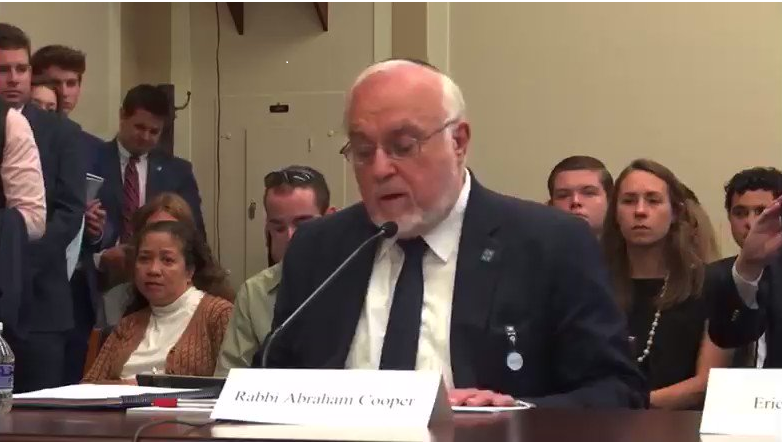‘No one should be denied access to a heritage site, especially one intended to highlight unity and progress, simply for existing as a Jew.’
By Vered Weiss, World Israel News
A US delegation to Saudi Arabia cut short its visit after an official from the Islamic kingdom asked an Orthodox Jewish rabbi to remove his kippah.
The chairman of the United States Commission on International Religious Freedom (USCIRF), Rabbi Abraham Cooper, was told to remove his kippah when the delegation approached Diriyah, a historic town that is a UNESCO World Heritage Site, near the capital city Riyadh.
Rabbi Cooper refused to remove his kippah, a head covering Orthodox Jewish men are commanded by the Torah to wear at all times.
In a statement, Rabbi Cooper wrote, “No one should be denied access to a heritage site, especially one intended to highlight unity and progress, simply for existing as a Jew.”
He added, “Saudi Arabia is in the midst of encouraging change under its 2030 Vision. However, especially in a time of raging antisemitism, being asked to remove my kippah made it impossible for us from USCIRF to continue our visit.”
Cooper explained in the statement, “We note, with particular regret, that this happened to a representative of a U.S. government agency promoting religious freedom.”
“USCIRF looks forward to continuing conversations with the Saudi government about how to address the systematic issues that led to this troubling incident,” he concluded.
Rabbi Cooper and Reverend Frederick Davie were invited to Diriyah and without warning, Saudi officials asked him to remove his kippah “while at the site and anytime he was to be in public, even though the Saudi Ministry of Foreign Affairs had approved the site visit.”
This incident comes at a time when relations between Israel and Saudi Arabia are cooling after normalization talks between the two countries showed significant progress prior to October 7th and the ensuing war between Israel and Gaza.
Reverend Davie declared that the incident with Rabbi Cooper stands in stark contrast to the religious reforms Saudi Arabia is currently instituting under its Vision 2030 plan.
Reverend Davie, USCIRF vice chair, said the incident was “stunning and painful.”
He added, “It directly contradicted not only the government’s official narrative of change but also genuine signs of greater religious freedom in the Kingdom that we observed firsthand.”


